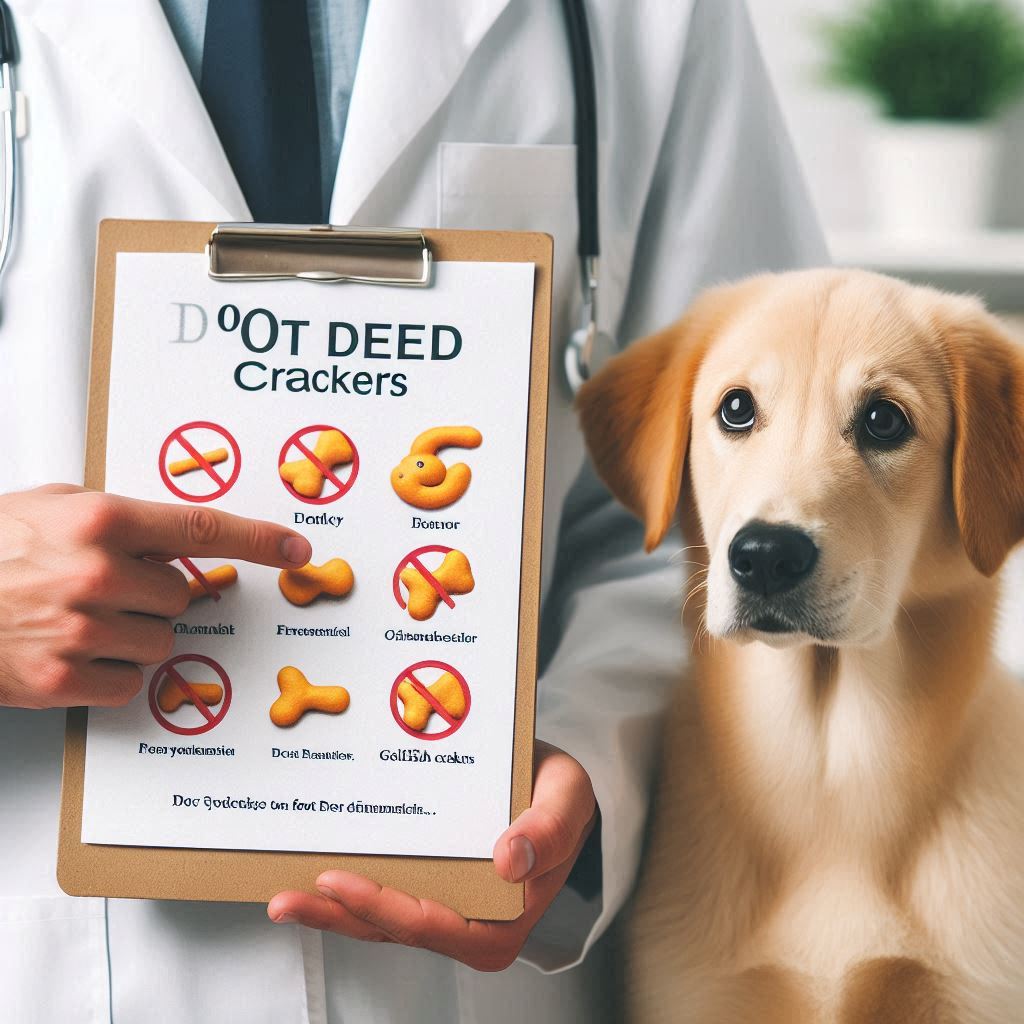
Table of Contents
Can dogs eat Goldfish crackers?
It’s a common question for pet owners who might be tempted to share their snacks with their furry friends. After all, those little fish-shaped crackers are a popular treat for humans, and their cheesy, salty flavor is hard to resist. However, before you toss one to your dog, it’s important to consider whether they are safe and healthy for them to eat. In this comprehensive article, we’ll explore the ingredients of Goldfish crackers, and their potential effects on dogs, and provide you with a clear answer to whether or not they should be part of your pet’s diet.
What Are Goldfish Crackers?
Goldfish crackers are a type of cheese-flavored snack that is shaped like a small fish. Manufactured by Pepperidge Farm, they have been a popular treat for children and adults alike since their introduction in 1962. The primary ingredients include enriched wheat flour, cheddar cheese, vegetable oils, and salt. The crackers are often seasoned with additional flavors like pizza, ranch, or pretzel, but the original cheddar variety remains the most popular.
Are Goldfish Crackers Safe for Dogs?

Analyzing the Ingredients
To determine if Goldfish crackers are safe for dogs, it’s essential to look at the ingredients in detail. Dogs have different dietary requirements than humans, and some ingredients that are safe for us can be harmful to them.
- Enriched Wheat Flour: While not toxic, wheat flour is a common allergen in dogs. Some dogs may have difficulty digesting wheat, leading to gastrointestinal issues such as bloating or diarrhea.
- Cheddar Cheese: Cheese in small amounts is generally safe for dogs. However, many dogs are lactose intolerant, and too much cheese can lead to stomach upset. The cheese in Goldfish crackers also contains added salt and artificial flavors, which are not ideal for dogs.
- Vegetable Oils: Oils like canola, sunflower, and soybean oil are used in the crackers. While these oils are not toxic, they add unnecessary fat to a dog’s diet, which can contribute to obesity if consumed in large amounts.
- Salt: High sodium content is a major concern. Dogs do not require as much salt as humans, and consuming too much can lead to salt poisoning. Symptoms include vomiting, diarrhea, tremors, and in severe cases, seizures.
- Artificial Flavors and Preservatives: These additives are used to enhance the taste and shelf-life of the crackers but provide no nutritional benefit to dogs. Some preservatives, like BHA and BHT, have been linked to health issues in pets.
Health Risks Associated with Goldfish Crackers
Given the ingredients, it’s clear that Goldfish crackers are not a suitable snack for dogs. The high salt content alone poses a significant risk, as dogs are prone to salt poisoning if they consume too much sodium. Additionally, the combination of fats and carbohydrates can contribute to weight gain and obesity, which can lead to more serious health issues such as diabetes and heart disease.
The artificial flavors and preservatives also add unnecessary risks, as some dogs may have sensitivities or allergies to these chemicals. Even if a dog appears to tolerate Goldfish crackers without immediate symptoms, the long-term effects of consuming such snacks can be detrimental to their health.
Can Dogs Eat Any Type of Crackers?
Common Ingredients in Crackers
While Goldfish crackers are not recommended for dogs, you might wonder if other types of crackers are safe. Most crackers, regardless of the brand or flavor, contain similar ingredients, such as flour, salt, oils, and preservatives. These components are generally not suitable for a dog’s diet.
Healthier Alternatives
If you’re looking for a crunchy treat for your dog, there are healthier alternatives. Carrot sticks, apple slices (without seeds), or specially formulated dog biscuits are excellent options. These treats offer nutritional benefits and are free from harmful ingredients like excess salt and artificial additives.
What to Do If Your Dog Eats Goldfish Crackers
Immediate Actions
If your dog accidentally eats a few Goldfish crackers, there’s no need to panic. Monitor your dog for any signs of discomfort, such as vomiting, diarrhea, or lethargy. In most cases, a small amount of crackers won’t cause serious harm.
When to Contact a Veterinarian
If your dog consumes a large quantity of Goldfish crackers or if they show any signs of distress, it’s best to contact your veterinarian immediately. Symptoms of salt poisoning or an upset stomach should be addressed promptly to prevent more serious complications.
Conclusion
In conclusion, dogs should not eat Goldfish crackers. While they may seem harmless, the high salt content, artificial flavors, and preservatives make them an unhealthy choice for your pet. Instead, opt for dog-friendly treats that are formulated with their specific dietary needs in mind.
FAQs
- Can Goldfish crackers be used as an occasional treat for dogs?
It’s best to avoid giving Goldfish crackers to your dog, even as an occasional treat, due to the potential health risks. - What are some safe human foods that dogs can eat?
Safe human foods for dogs include plain cooked chicken, rice, carrots, apples (without seeds), and peanut butter (without xylitol). - How can I tell if my dog has eaten something harmful?
Symptoms like vomiting, diarrhea, drooling, lethargy, or changes in behavior may indicate that your dog has ingested something harmful. Contact your vet if you notice any of these signs.



